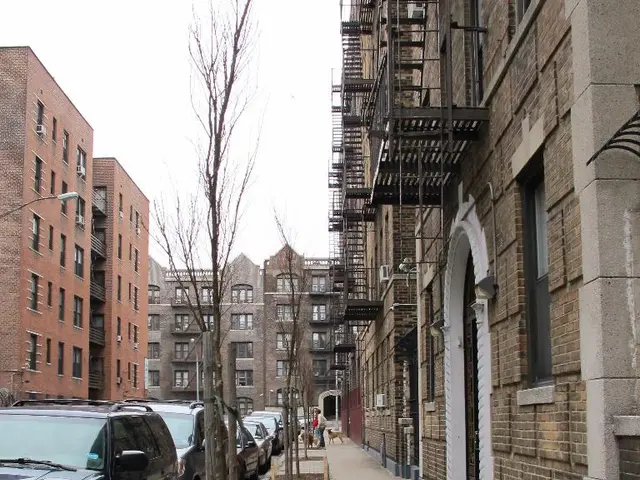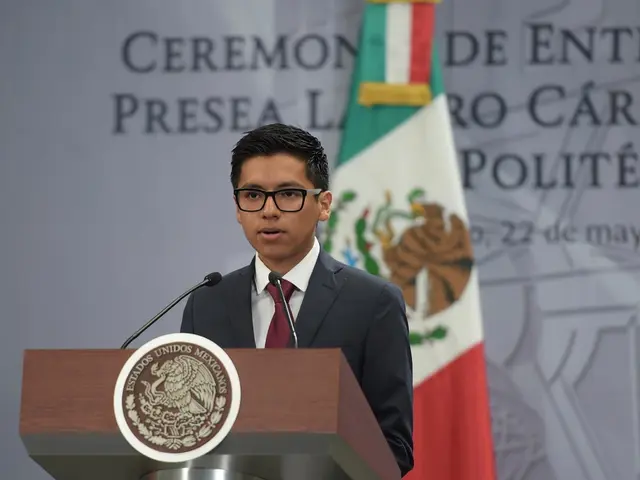High Court deliberates over approval of faith-based public school in the nation.
A Tilt at Religious Charter Schools: The Showdown at the Supreme Court
The impending Supreme Court case, set to take place on Wednesday, centers around the Oklahoma's bid to authorize the nation's first religious public charter school. However, the ripples of this case could be wide-reaching, potentially impacting charter school laws across numerous states.
At the heart of this dispute is St. Isidore of Seville Catholic Virtual School, an online educational institution seeking approval to operate statewide while promoting Catholic teachings. The case is intricate, involving tensions within the Constitution's First Amendment – specifically, the Establishment Clause and the Free Exercise Clause.
The Conflict Unveiled
While the Establishment Clause prohibits state endorsement or preference for one religion, the Free Exercise Clause forbids religious discrimination. The lawyers representing St. Isidore argue that preventing religious entities from running charter schools breaches the Free Exercise Clause. The Archdiocese of Oklahoma City and the Diocese of Tulsa jointly proposed the school.
On the flip side, Oklahoma Attorney General Gentner Drummond, who has challenged the decision to approve the school, views the proposal as religious indoctrination.
Historical Perspective
The court has leaned towards strengthening the Free Exercise Clause in recent years, often at the expense of the Establishment Clause – a move that some conservatives argue is long overdue due to the common understanding of the Establishment Clause requiring strict separation of church and state.
The Questions at Stake
The court will consider two primary questions. First, whether charter schools can be deemed as public schools, subject to the Establishment Clause's requirements, or if they are entirely private entities that receive state funding, not subject to such restrictions.
Second, if charter schools are indeed private entities, could barring religious schools from a state charter school program due to religious discrimination under the Free Exercise Clause.
The Impact
With a 6-3 conservative majority, the court often backs religious-rights cases. However, the case gets complicated with the recusal of Justice Amy Coney Barrett. If the court splits 4-4, the Oklahoma Supreme Court's ruling declaring the school unconstitutional would stand. Barrett's decision to step aside remains unexplained, possibly linked to her ties with Notre Dame Law School, where the Religious Liberty Clinic represents St. Isidore.
National Implications
If the court rules in favor of St. Isidore, it could open the door for other states to follow suit, reworking their laws to accommodate religious schools in charter school programs, or face lawsuits that would require them. Such a ruling would also bring charter school laws nationwide under question, granting "special status" to religious charter schools compared to secular ones.
Potential Consequences
A favorable decision for St. Isidore could have unintended consequences, as warned by the National Alliance for Public Charter Schools. For instance, many charter schools could lose vital state funding if the court concludes they are not public schools, which defies state laws banning public money going to private schools, regardless of their religious affiliation.
Additionally, the ruling could have broader impacts at the federal level, potentially affecting the program that provides funding to charter schools and prohibits funds from going to sectarian schools.
The case underscores broader questions about the relationship between church and state in public education, potentially leading to a mixed model of public education where religious institutions play a more prominent role, with varying implications for community unity and educational outcomes.
- The legal dispute surrounding St. Isidore of Seville Catholic Virtual School could potentially change education-and-self-development laws in numerous states, as the School seeks to operate statewide while promoting Catholic teachings.
- The archdiocese and diocese of Oklahoma argued in favor of the charter school, claiming that preventing religious entities from running charter schools breaches the Free Exercise Clause, which forbids religious discrimination.
- In contrast, Oklahoma Attorney General Gentner Drummond views the proposal as unconstitutional religious indoctrination.
- The court will consider if charter schools are subject to the Establishment Clause's restrictions or if they are entirely private entities that receive funding, benefiting from the General-news program that provides funds to charter schools but prohibits funds from going to sectarian schools.
- The potential impact of the Supreme Court's decision is far-reaching, with national implications for education-and-self-development and potential political ramifications, as it may require states to accommodate religious schools in charter school programs, granting "special status" to religious charter schools compared to secular ones.









